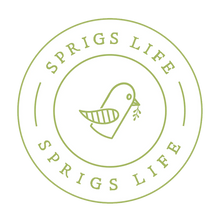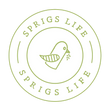Folic acid Vs. Folate: is one better than the other?
Whether you're a first-time momma or a momma of several children, we all desire the absolute best for each one. Just recently, I’ve had some mommas calling and asking about the difference between folic acid and folate. Which is better? Which one should I be using? Is there a difference?

What is Folic Acid?
What is folic acid? Folic acid is a synthetic form of the B9 vitamin, known as pteroylmonoglutamic acid, a synthetic form of folate. What is synthetic? Synthetic is where the substance is not produced naturally or organically. Folic acid is not only found in supplements but in processed food products, such as breakfast cereals and flour to name a few. It was thought for many years, that folic acid was easier absorbed into the body than folate. Keep in mind, folic acid was pretty much non-existent in our diets until it was first introduced in 1943. It was shown to help prevent risks of developing neural tube defects in infants, thus becoming a part of the mandatory food fortification list in 1998.
Is Folic Acid Safe?
Surprisingly, folic acid is one of the very few vitamins and minerals that the government health agencies have embraced. Although research shows to conclusive, folic acid has been proven to not only to be harmful but it has also been linked to causing cancer! Folic acid needs the assistance of an enzyme called, dihydrofolate reductase (which is rare in the body) in order to metabolized by the small intestines. Some people, women of childbearing ages in particular, who consume large amounts of folic acid through fortified foods or vitamins makes it hard for the body to break it down, thus leading to elevated levels of unmetabolized folic acid, which then ends up in the bloodstream. Since folic acid is synthetic, it doesn’t cross the placenta the same way folate would.
What is Folate?
Folate is known as vitamin B9. Folate is found naturally in foods such as dark leafy vegetables like kale, spinach, collard greens, liver, lentils and garbanzo beans. Unlike, folic acid, folate, is more adept and also helps to regulate healthy levels by releasing the excess through the urine.
Benefits of Folate
Folate is needed for the formation of white and red blood cells in the bone marrow. Adequate intake of folate is crucial during periods of rapid growth such as pregnancy, infancy, and adolescence.
Folate has been shown to help prevent several birth defects along with:
Healthy neural tube formation
Proper development of heart and face
Adequate birth weight

Is it Common To Have Low Levels of Folate?
Yes, it is common that most people have low levels of folate. Especially those who choose not to eat whole foods that contain folate. The B vitamins help the body convert food into fuel, which is used to produce energy and help the body use the fats and proteins. We obtain most of our folate through the whole foods we consume.
Why is Folate Crucial During Pregnancy?
For the first months of pregnancy, it is crucial because folate promotes brain health, fights neural tube defects, promotes cell and tissue growth and also promotes a level of defense against anemia.
Some Signs of Folate Deficiencies
When there is lack of folate, the deficiencies set in and can contribute to anyone and include one or more of the following:- Loss of appetite
- Diarrhea
- Poor growth
- Irritability
- Gingivitis
- Tongue inflammation
- Mental sluggish
- Forgetfulness
- Shortness of breath

15 Ways to Get Folate in Your Diet Naturally
Beans and lentils
1 cup of black beans = 256 mcg
1 cup of pinto beans = 294 mcg
1 cup of garbanzo beans = 282 mcg
1 cup of navy beans = 254 mcg
1 cup of lima beans = 156 mcg
1 cup of green beans = 42 mcg
1 cup of lentils = 358 mcg
1 cup of split peas = 127 mcg
1 cup of green peas = 101 mcg
Dark leafy greens
1 cup of collard greens = 177 mcg
1 cup of turnip greens = 170 mcg
1 cup of romaine lettuce = 76 mcg
1 cup of mustard greens = 103 mcg
1 cup of spinach = 263 mcg
Brussel sprouts
1 cup of brussel sprouts can give you approximately 25% of the daily recommended amount of folate.
Cauliflower
Known for its high vitamin C content, it is also a great source of folate. 1 cup of cauliflower equals 55 mcg of folate.
Okra
One cup of cooked okra can give you approximately 37 mcg of folate.
Avocado
Avocado can give you up to 90% mcg of folate per cup.
Corn. One cup of cooked, fresh, or organic corn can give you approximately 76 mcg.
Beets. Not only do beets provide detox support, by one cup of boiled beets can provide you with approximately 136 mcg of folate.
Celery. One cup of raw celery equals out to be approximately 34 mcg of folate.
Squash. Adding squash to your diet will help boost folate levels.
1 cup of summer squash = 36 mcg
1 cup of winter squash = 57 mcg
Carrots. One cup of raw carrots can equal up to 5% of a daily recommended need for folate.
Asparagus. One of the most nutrient dense foods that contain folate. One cup of asparagus equals to 262 mcg of folate.
Broccoli. Organic of lightly steamed, can give you 24% of the daily folate needs.
Seeds and nuts. Below is a short list of the best seeds and nuts.
Almonds. 1 cup = 46 mcg
Flax seeds. 2 tlbs. = 54 mcg
Peanuts. ¼ cup = 88 mcg
Sunflower seeds. ¼ cup = 82 mcg
Citrus Fruits. Although many fruits contain folate in them, citrus fruits rank the highest, especially oranges. A large glass of orange juice could contain much more.
Papaya. 1 cup = 115 mcg
Orange. 1 cup = 40 mcg
Grapefruit. 1 cup = 30 mcg
Strawberries. 1 cup = 25 mcg
Raspberries. 1 cup = 14 mcg
Why Do So Many Prenatal Supplements Contain Folic Acid Instead of Folate?
So many prenatal supplements contain folic acid instead of folate, simply because, it is easier to contain folic acid and is also cheaper. As stated before, it was thought for many years, that folic acid was easier absorbed into the body than folate. Folic acid, which is typically recommended for pregnant women is not a natural source that the body needs.
Which leads me back to the beginning. It wasn’t until we had momma’s calling about our Mama Bear Prenatal Vitamin, that we learned that our product label stated folic acid. We had our product re-tested, and in fact, our Mama Bear Prenatals contained folic acid. Since learning this information, we have made adjustments so that the product now contains folate, and not folic acid and also adjusting our labels.
Here at Sprigs, we made it our mission to find a trusted herbalist to formulate a prenatal vitamin that midwives feel safe recommending to mama's and a supplement mothers could trust to give themselves and their baby the nutrition they needed to stay strong and healthy during pregnancy and lactation. Mama Bear Prenatal is in a form that is safe, gentle and effective. Mama Bear Prenatal includes herbs such as Red Raspberry Leaf, Nettles, Ginger, and Chamomile. Red Raspberry Leaf and Nettles have been used for thousands of years to help provide pregnant women with the nutrition so desperately needed during pregnancy. Traditionally, they have been trusted to help strengthen and tone the uterus, balance hormones, supply much-needed antioxidants, increase milk production, strengthen the kidneys, provide vitamins K, C, D, A, potassium, calcium, iron and so much more. Ginger and Chamomile have traditionally been used to help alleviate nausea, prevent insomnia and promote gentle relaxation. Mama Bear Prenatal Vitamins also contain a complete daily dose of the same trace minerals that I have found effective for so many women in the past.This is especially important for those that have been pregnant before as our bodies tend to become more depleted with multiple pregnancies.
We carefully chose whole food ingredients that make it easy for our bodies to recognize and utilize the available nutrients. Pregnancy is much easier when our bodies are getting the nutrients it needs to remain healthy, strong and energized. The right nutrition also helps to ensure that our baby will have the building blocks it needs to support healthy growth and development. Mama Bear Prenatals are made from wholesome, natural ingredients, certified organic herbs and with no preservatives. Whole food nutrients are readily recognized and better utilized by the body; therefore you can take lower potencies with better results. The herbs in this formula are safe for use during pregnancy and lactation. It also contains 800 mcg of Folate to support the healthy development of your growing baby. Our formula is Certified Gluten-Free, Vegetarian safe, Soy free, Dairy Free, Kosher and made with Non-GMO ingredients.





Leave a comment